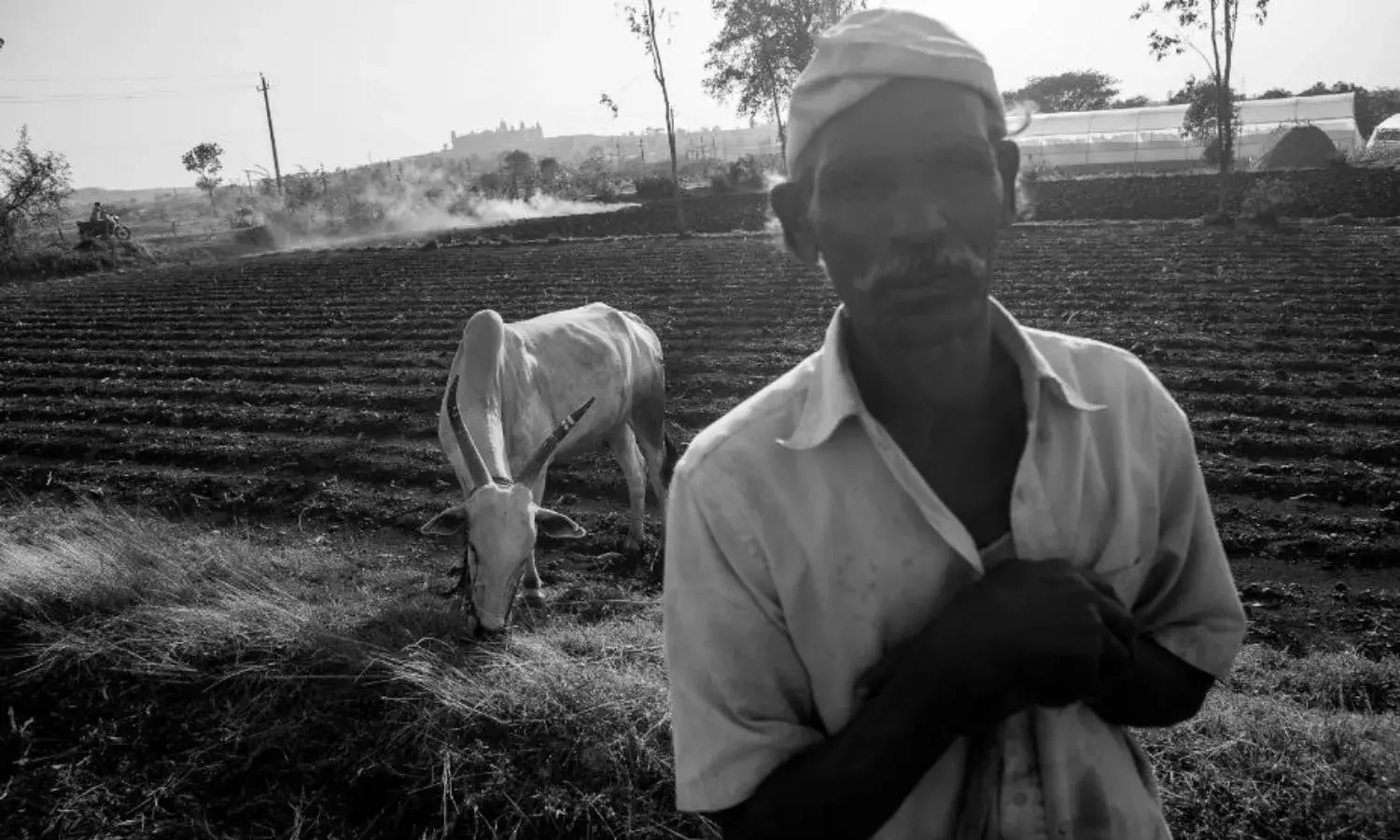Banks Must Initiate Relief Operations for Farmers, Now
They have waived loans of over ?2 lakh crores taken by industrialists and corporations

Floods in Maharashtra, Karnataka and Kerala and other parts of the country have devastated homes and crops, creating unprecedented calamity which needs urgent corrective relief on a permanent and structural rather than an ad hoc basis.
The relief funds collected by various organisations prove that a calamity in almost any part of the country amounts to a national one.
Relief operations tend to be more incidental than focused on priorities, as also they are more selective than collective. Collective philanthropy is needed because calamities are strong signals of recurring needs, indicative enough to avoid similar incidents in future. The lives of the victims are brought to normalcy and permanency by both the state and union governments and by philanthropic organisations.
Large corporations, wealthy industrialists, affluent actors and others who share their social responsibility by donating some amount out of their profits are not few in India. But their philanthropic help is periodical and selective. Besides, there is no priority in selecting the area of help.
Priority must be fixed and areas identified where the government is proving inadequate in providing. All philanthropists should create a pool of funds to select the prime areas where help is urgently needed, with data from the government or from the concerned organisations and community representatives who are consistently demanding relief.
According to the National Crime Records Bureau’s last published data on farmers’ suicides, 80 percent of farmers who killed themselves had taken loans from banks and finance companies, not private moneylenders, and were in a debt trap due to conditions beyond their control.
As projected by local and national media, the floods have added to the normal difficulties. When nothing has remained compelling all to suffer total loss, the relief should also be total and generously conceived.
A total loan waiver is the first priority, because it is not possible to repay loans that are inflated well beyond normal because of high interest rates and the inadequacy of subsidies, unlike those offered to big business and other sectors of the economy.
As a total loan waiver is inevitable, all banks should take the initiative to waive all loans of farmers in Maharashtra and other crisis areas. For long the demand has been voiced by farmers’ organisations – which emphasise that this is an urgent necessity and not a permanent solution – and the situation is very serious now after the natural calamity.
While giving total loan waiver the land records known as 7/12 documents should be the basis for calculations as all loans are recorded on these documents. If this document is verified for loan waiver there need not be any expectation of a formal application for the waiver. This is important because it is neither possible nor necessary to submit formal applications to demand a loan waiver.
Banks can waive all loans as per the RBI, which has allowed banks to waive the loans of borrowers who are unable to repay them.
So far banks have not waived farmers’ loans even though farmers were distressed due to drought and other adverse conditions. They have however waived loans amounting to over ?2 lakh crores taken by industrialists and corporate bodies in their own discretionary power. Repayment defaults by some of these very companies have spiralled into massive sums of public money. Why have banks have not waived the loans of distressed farmers to prevent their suicides?
This writer asked the RBI why there is a discrepancy in waiving loans to other sectors but not to distressed farmers. In its reply the RBI sent a circular pointing out that the chairmen of all commercial banks are allowed to take policy decisions regarding credit and loan waivers, and the farm sector is included in it.
According to the RBI’s reply, Section 2 of Circular No.BPBC 21/1/04095 dated July 28, 1995 states that each bank should decide its own loan and recovery policy, the manner of recovery of dues, the targeted level of reduction, the norms of permitted sacrifice or waiver of loans, and so forth.
The circular clearly allows all commercial banks to take decisions regarding loan waivers. But is the farm sector included in the list for loan waiver? When asked again this specific question, the RBI replied, “It is advised that the circular in reference (dated July 28, 1995) is applicable to all the loans of banks, including those to the farm sector.”
All banks in the nationalised sector and all district central cooperative banks and rural credit societies should now take the initiative to waive all loans recorded on land documents (7/12) directly as the data is readily available in all collectors’ offices in all districts.
For recapitalisation the funds collected from collective philanthropists may well be used together with government funds, such as were recently infused into publicly owned banks, so that lenders will not feel any crisis of deficiency of funds for their normal functioning in routine matters.
Such suo moto action (of their own initiative) by banks is urgently necessary to provide relief to farmers, now, in order to prevent their anxieties and depression which may trigger more suicides.
Prabhakar Kulkarni is a senior journalist.
(Cover Photo: ZACHARIE RABEHI on assignment for The Citizen)



